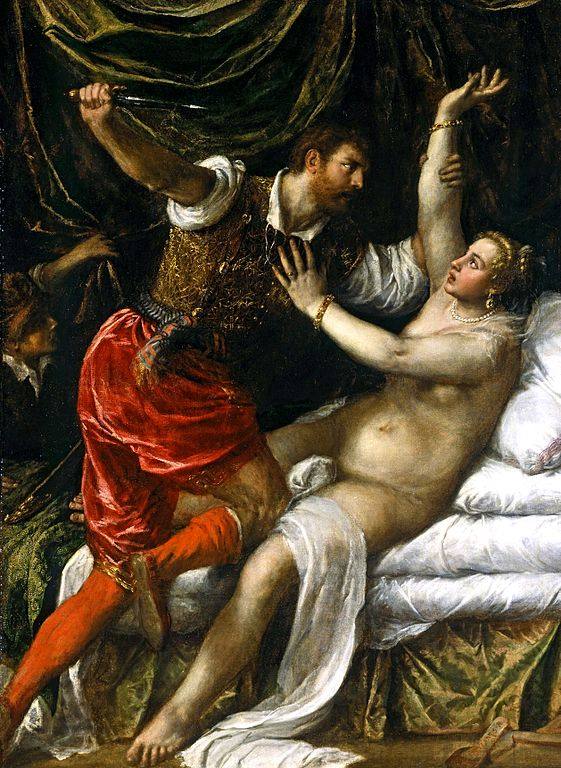settings
Ulysses vocabulary
19 famous people mentioned
help & settings
[x]
-
Lucretia
-
► definition
Definition:[510 BC]a heroic Roman woman whose rape by King Superbus' son (Sextus Tarquinius) followed by her subsequent suicide caused enough of an uproar that the monarchy was banished from Rome and replaced by a republic. painting: by Titian (1571) https://commons.wikimedia.org/wiki/File:Tizian_094.jpg
painting: by Titian (1571) https://commons.wikimedia.org/wiki/File:Tizian_094.jpg
► uses
Uses:
Had Tarquinius used his love with colours of countenance, Lucretia would either with some pity have answered his desire, or with some persuasion have stayed her death.
John Lyly. Euphues: The Anatomy of Wit (1578)
---
The accomplishment was nothing. The meticulous maps, drawn in three colors of ink, learning and spelling decasyllabic words, memorizing the whole of The Rape of Lucrece—it was for nothing.
Maya Angelou. I Know Why the Caged Bird Sings (1969)
---
And sermons from your mouth! a little grisette who wishes to play Lucretia here. Come, sweetheart, leave such twaddling talk.
Charles Paul de Kock. The Barber of Paris
---
LUCIUS TARQUINIUS SUPERBUS, seventh and last king of Rome (534-510), usurped the throne after murdering his father-in-law, King Servius Tullius; ruled as a despot, extended the power of Rome abroad, but was finally driven out by a people goaded to rebellion by his tyranny and infuriated by the infamous conduct of his son Sextus (the violator of Lucretia); made several unsuccessful attempts to regain the royal power, failing in which he retired to Cumæ, where he died.
Rev. James Wood. The Nuttall Encyclopaedia (1907)

